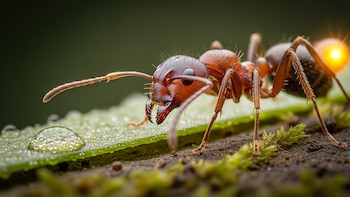COLORADO SPRINGS, Colo. – Today, the United States Olympic Committee announced additional reforms and new initiatives designed to protect athletes from abuse and respond quickly and effectively when issues surface. The USOC also announced that CEO Scott Blackmun is resigning due to ongoing health issues resulting from prostate cancer. Susanne Lyons, a current board member, will serve as acting CEO, overseeing the USOC’s day-to-day operations while the search for a permanent successor is underway.
"Given Scott’s current health situation, we have mutually agreed it is in the best interest of both Scott and the USOC that we identify new leadership so that we can immediately address the urgent initiatives ahead of us," said USOC Chairman Larry Probst. "The USOC is at a critical point in its history. The important work that Scott started needs to continue and will require especially vigorous attention in light of Larry Nassar’s decades-long abuse of athletes affiliated with USA Gymnastics. We will be working with key stakeholders to help identify a permanent successor to Scott. In the meantime, I am confident that Susanne is the right person to help us navigate this critical transition period."
Blackmun has served as CEO of the USOC since 2010. He was the driving force behind many of the improvements the USOC has made to help protect athletes – notably the establishment of the U.S. Center for SafeSport and the development of the SafeSport initiative. Blackmun also led the effort to bring the 2028 Olympic and Paralympic Games back to the United States, ensured record financial support for Team USA athletes, renegotiated the USOC’s revenue sharing agreement with the International Olympic Committee, and substantially enhanced the USOC’s presence and influence in the global Olympic Movement.
"Serving the USOC and its many stakeholders and working with our board, our professional staff and many others who support the Olympic and Paralympic movements has not only been immensely rewarding, it has been an honor and the highlight of my professional life," said Blackmun. "I am proud of what we have achieved as a team and am confident that Susanne will help the USOC continue to embody the Olympic spirit and champion Team USA athletes during this transition."
In January, Lyons was selected as chair of the USOC board’s working group addressing issues the Nassar case has brought to light. Since then, she has been leading the USOC’s efforts to ensure a process that is independent, transparent, sensitive and accessible. Lyons has been serving as an independent director to the USOC board of directors since December 2010. She has extensive global and Olympic experience, including 40 years of expertise in general management, marketing, sponsorship, business strategy and revenue generation. Lyons served as the executive vice president and chief marketing officer of Visa USA – a member of the IOC’s The Olympic Partner Program – from 2004-07. Prior to this, Lyons held leadership roles for Charles Schwab & Co. and Fidelity Investments.
"While we are eager to review the findings of the independent investigation, the USOC is taking important actions now based on what we already know," said Lyons. "We are evaluating the USOC’s role and oversight of all the National Governing Bodies, considering potential changes to the Olympic structure and aggressively exploring new ways to enhance athlete safety and help prevent and respond to abuse."
The reforms and new actions the USOC is announcing today include:
Providing new funding and resources for support and counseling for gymnasts impacted by Nassar’s crimes and launching a new resource for athletes from other Olympic and Paralympic sports recovering from similar abuse.
Forming an advisory group to bring together survivors, advocates, child psychologists and other medical professionals to guide the USOC on stronger safeguards against abuse throughout the Olympic community, and effective support for victims. This may lead to additional changes to the USOC policies and methods for addressing cultural issues and conflicts of interest that may exist in sports, hampering prevention of abuse.
Launching a review of the USOC and NGB governance structure as defined by the Ted Stevens Amateur Sports Act, including seeking input from safe sport advocacy groups, the NGB Council, the Athletes’ Advisory Council, current athletes and policymakers to consider clarifications and changes to this structure. As the leader of the U.S. Olympic and Paralympic community, the USOC must ensure that its governance structure unequivocally provides the ability to oversee and act when necessary to protect athletes.
Revisiting USOC SafeSport procedures to determine what measures are necessary to ensure allegations of abuse are reported to the U.S. Center for SafeSport, in addition to law enforcement, and that necessary follow-ups occur. This also would enable NGBs and the USOC to be more aware of problems as they arise, spot trends, and know where more oversight and engagement are necessary.
Effectively doubling USOC’s funding of the Center for SafeSport to enable it to hire more investigators and staff, improve the speedy resolution of cases, enhance ongoing communication for victims and their families, provide age-appropriate training on recognizing and helping to prevent abuse, and offer better and more accessible resources online.
Ensuring that athletes have a stronger voice within the USOC. In addition to the AAC already in place, the USOC will seek input on its decision making from currently competing athletes and athletes who have competed in the past.
Working with USAG to address its governance issues, implement a culture change, and act on the results of the independent investigation once it is complete.
"The goal of our organization is to protect and support each and every athlete," said Whitney Ping, an athlete representative on the USOC board. "We are absolutely committed to our ongoing and increased efforts to ensure current and future athletes can train and perform in an environment where they feel safe and supported. As the independent investigation continues, we will continue to look for ways to strengthen them even further."
A factsheet about these initiatives can be found at TeamUSA.org.
CONTACTS
Patrick Sandusky
Chief External Affairs Officers, USOC
719-866-4531 | Patrick.Sandusky@usoc.org
Mark Jones
Managing Director of Communications, USOC
719-866-2226 | Mark.Jones@usoc.org
25 Years at #1: Your best source of news about the Olympics is www.aroundtherings.com, for subscribers only
Últimas Noticias
Utah’s Olympic venues an integral part of the equation as Salt Lake City seeks a Winter Games encore
Utah Olympic Legacy Foundation chief of sport development Luke Bodensteiner says there is a “real urgency to make this happen in 2030”. He discusses the mission of the non-profit organization, the legacy from the 2002 Winter Games and future ambitions.

IOC president tells Olympic Movement “we will again have safe and secure Olympic Games” in Beijing
Thomas Bach, in an open letter on Friday, also thanked stakeholders for their “unprecedented” efforts to make Tokyo 2020 a success despite the pandemic.

Boxing’s place in the Olympics remains in peril as IOC still unhappy with the state of AIBA’s reform efforts
The IOC says issues concerning governance, finance, and refereeing and judging must be sorted out to its satisfaction. AIBA says it’s confident that will happen and the federation will be reinstated.

IOC president details Olympic community efforts to get Afghans out of danger after Taliban return to power
Thomas Bach says the Afghanistan NOC remains under IOC recognition, noting that the current leadership was democratically elected in 2019. But he says the IOC will be monitoring what happens in the future. The story had been revealed on August 31 in an article by Miguel Hernandez in Around the Rings

North Korea suspended by IOC for failing to participate in Tokyo though its athletes could still take part in Beijing 2022
Playbooks for Beijing 2022 will ”most likely” be released in October, according to IOC President Thomas Bach.




